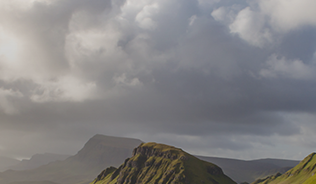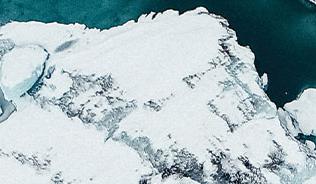2021 marks the beginning of the UN's Decade of Ocean Science for Sustainable Development. The Ocean Decade aims to strengthen the science-policy interface in management of our oceans and to help support countries in achieving the 2030 Agenda for Sustainable Development. This recognises the vital role that ocean ecosystems play in addressing environmental crises and supporting societal wellbeing.
The Decade provides a framework for collaborative action between all stakeholders, recognising the need for a coordinated and holistic approach to ocean science and management. These actions depend on informed decision-making, which will only be effective if they are based on sound science. Through the support and championing of interdisciplinary working in ocean science, the Decade will enable the delivery of scientific evidence on the state of the ocean, and will allow interconnected scenarios and pathways to be defined for sustainable development. Crucially the Decade will also work to improve knowledge-sharing and capacity-building between nations, with a particular focus on supporting Small Island Developing States, Least Developed Countries and Landlocked Developing Countries, and subsequently improve the scientific knowledge base.
The first event of the Decade, A Brave New Ocean, will be held on the 3rd February. It is a high-level virtual event organised by the Intergovernmental Oceanographic Commission of UNESCO, which will highlight the immense challenges and opportunities the ocean provides in the context of the Ocean Decade.
How will the IES be supporting the Ocean Decade?
As an official partner of the Ocean Decade, the IES will be focused on supporting marine and coastal scientists through valuable professional development opportunities and championing the important work that they do. We will also endeavor to use our convening power to bring stakeholders together and help connect marine and coastal scientists with policy-makers and other stakeholders.
Here are a few things the IES will be doing over the coming year:
- Publishing an edition of the environmental SCIENTIST journal focussed on the Ocean Decade challenges
- Producing tailored Chartership guidance for marine and coastal scientists to support their professional development and promote professionalism in the sector
- Convening fora and hosting webinars on topical issues in marine and coastal science
- Pursuing collaborations with other organisations in the sector. For example we are partnering with the Plover Rovers, a charity dedicated to improving ocean literacy by connecting the marine scientific community with coastal communities in the UK.
How can I get involved?
Join our Marine and Coastal Science Community, a community of like-minded professionals looking to promote an interdisciplinary approach to marine and coastal issues. Our communities are groups of people who come together around a shared goal, shared interest or shared set of values. Members and invited external experts work collaboratively with the IES to determine key objectives for the specialism and develop tailored membership services. By joining the Community, you will have the opportunity to network with fellow professionals working in the specialism and help steer the activities of the IES in this area. If you would like to join the community, please do get in touch.
Why not also sign up to be a walker talker for the Plover Rovers? Share your love of the English coastline and engage with coastal communities through their Talking the Coast the project.



